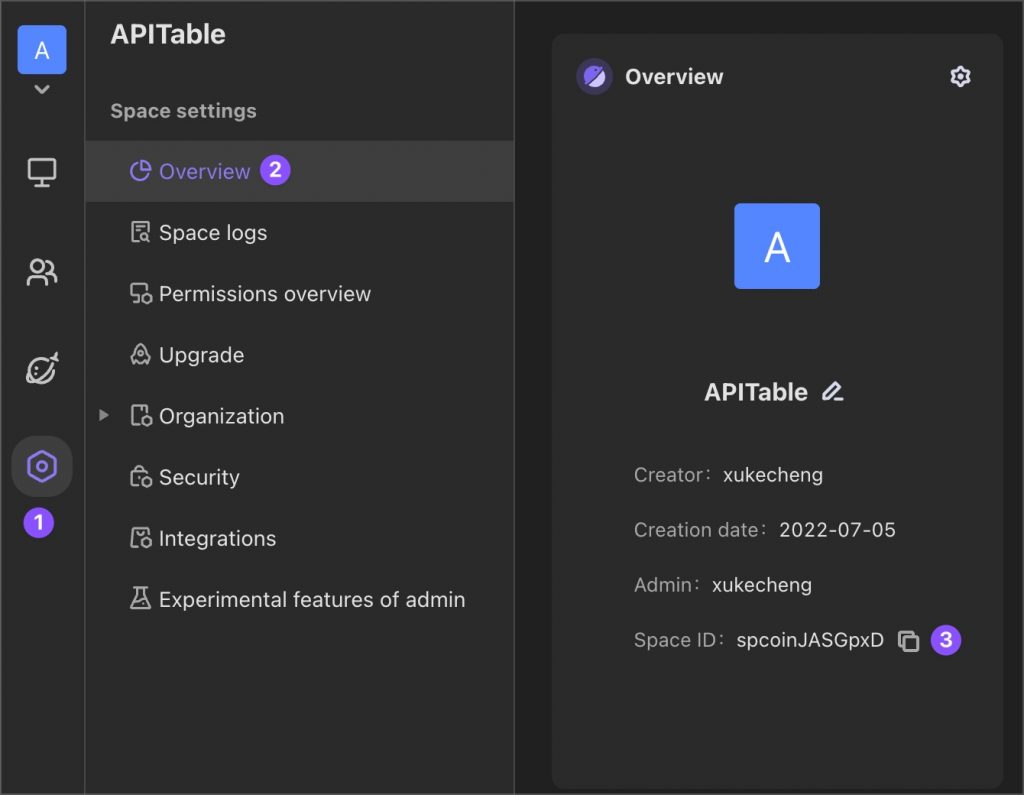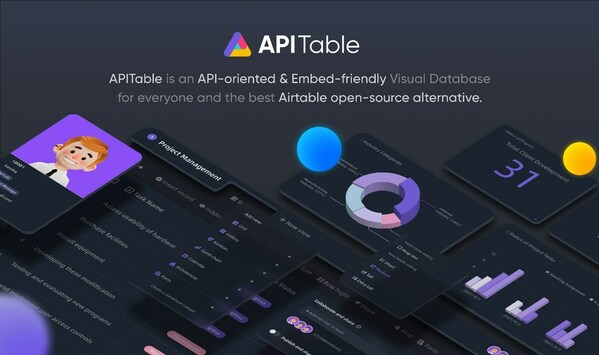APITable Overview:
APITable is a cloud-based service that allows developers to quickly and easily create REST APIs and webhooks for their applications. It’s a low-code solution that makes it simple for developers to set up and manage their APIs, without having to worry about the infrastructure or maintenance involved in building and managing their own API servers.
One of the key features of APITable is its drag-and-drop interface for creating data tables. Users can import data from a variety of sources, including CSV files, Google Sheets, and databases, and then use APITable’s intuitive interface to design their API endpoints. The service supports a wide range of data types, including text, numbers, dates, and more, making it easy to create APIs for a variety of use cases.
APITable also includes a variety of built-in features that make it easy to customize and manage your APIs. For example, users can define custom authentication and access controls, set up webhooks to automatically trigger actions in other systems, and configure notifications to alert them when specific events occur.
In addition, APITable provides robust documentation and testing tools, making it easy to share your APIs with other developers and integrate them into other applications. The service includes detailed documentation for each API endpoint, and also provides a testing console that lets you quickly try out API requests and view the responses.
Key Features Of APITable
APITable is a cloud-based platform that allows users to transform data from various sources into APIs, making it easier for developers to access and use that data in their applications. Some key features of APITable include:
- Data integration: APITable can integrate data from a variety of sources, including spreadsheets, databases, and cloud storage services. This allows users to easily bring all their data together into a single platform.
- API creation: With APITable, users can quickly and easily create APIs from their data. This makes it easy for developers to access and use that data in their applications.
- API management: APITable provides tools for managing and monitoring APIs, including the ability to control access, set rate limits, and track usage.
- Security: APITable takes security seriously and provides a number of features to keep data safe, including encryption, access controls, and audit logs.
- Customization: APITable allows users to customize their APIs to meet their specific needs. This includes the ability to control the data that is exposed, add custom authentication, and more.
- Collaboration: APITable supports collaboration, allowing multiple users to work on the same APIs and data sources. This makes it easy for teams to work together and share data.

Pros & Cons of APITable
Pros:
- Easy to use: APITable is easy to use, and users can create APIs quickly without writing any code. This makes it ideal for users with little or no programming experience.
- Multiple data sources: APITable supports a variety of data sources, including CSV files, spreadsheets, and databases. This allows users to connect to multiple data sources and create APIs with ease.
- Real-time data: APITable provides real-time data, which means that users can access the most up-to-date information in their APIs.
- Customizable: APITable allows users to customize their APIs, including setting up filters, sorting, and pagination. This gives users greater control over the data they receive.
- Scalability: APITable is a scalable platform, which means it can handle large amounts of data and traffic.
Cons:
- Limited functionality: APITable is not as powerful as other API platforms, and it may not be suitable for more complex API requirements.
- Limited security features: APITable does not offer advanced security features such as authentication and authorization. This may be a concern for users who need to protect their data.
- Limited integrations: APITable has limited integrations with other tools and platforms. This means that users may not be able to connect APITable with their existing software.
- Limited support: APITable does not have a large user community, and support may be limited. Users may have to rely on documentation and forums to resolve any issues they encounter.
What Purposes Does APITable Serve?
Some of the common uses of APITable are:
- Building APIs: APITable allows users to build APIs quickly and easily by connecting to various data sources such as spreadsheets, CSV files, and databases. Users can then access this data through a RESTful API.
- Data integration: APITable enables users to integrate and combine data from multiple sources, making it easier to analyze and use the data.
- Data visualization: APITable can be used to build visualizations such as charts and dashboards by pulling data from various sources through the API.
- Automation: APITable can be used to automate tasks such as data collection and processing, eliminating the need for manual data entry and reducing the risk of errors.
- Rapid prototyping: APITable can be used to quickly create and test new ideas without the need for complex software development, making it a great tool for rapid prototyping.
- Backend development: APITable can be used to develop the backend for web and mobile applications, allowing developers to quickly build and test APIs.
Conclusion
Overall, APITable is an excellent tool for developers who need to quickly create and manage REST APIs and webhooks. With its drag-and-drop interface, customizable features, and robust documentation and testing tools, it’s a low-code solution that can help developers get their applications up and running quickly and efficiently.

